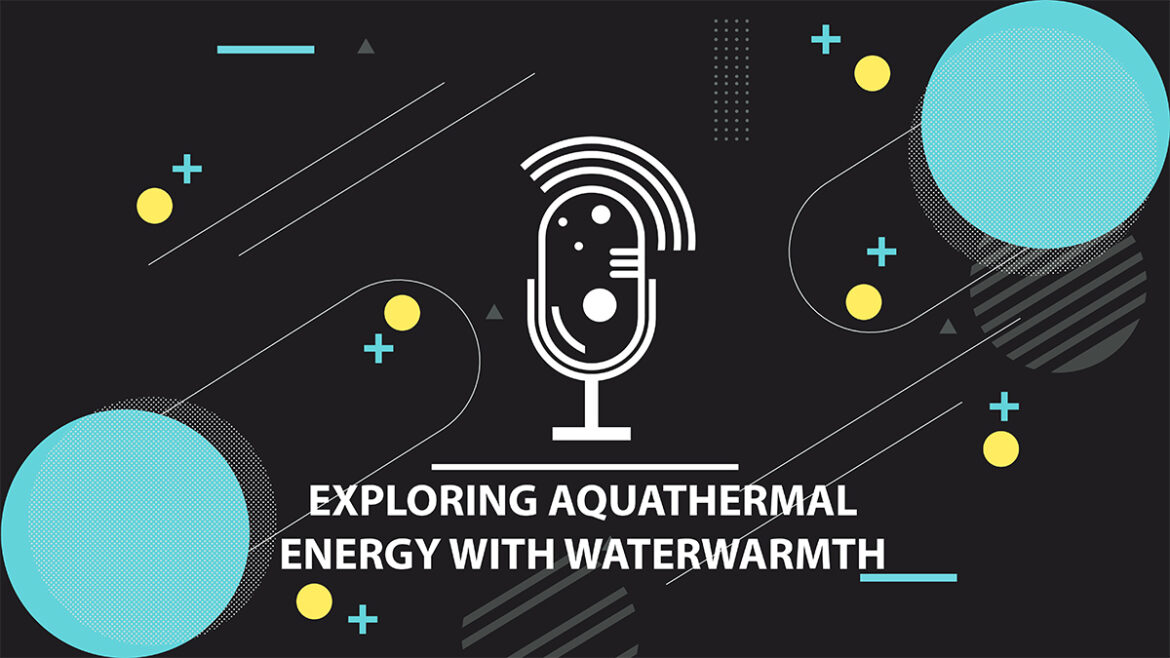Tapping into the latent heat of water bodies, aqua thermal energy “makes waves” in the clean heat transition and promises sustainable and environmentally friendly heating.
Host and Guest Introductions
In this first episode of the WaterWarmth podcasts, host Lesya Logvynenko is joined by Lenn Coussement from Extraqt and Lars Zwaaneveldt, a Dutch policymaker, will uncover the potential of aquathermal systems. From technical feasibility to policy roadblocks, they explore whether this emerging solution can scale up – or if it will remain a niche experiment in Europe’s energy mix. This WaterWarmth podcast is the first in a series.
Published in Hot Cool, edition no. 2/2025 | ISSN 0904 9681 |
What is Aquathermal Energy?
Aquathermal energy uses, e.g., surface water as a heat source for heat pumps, offering a renewable alternative to traditional energy sources like natural gas. According to Lenn Coussement, this technology functions similarly to geothermal heat pumps but with lower costs and less spatial impact , making it an attractive solution for municipalities looking to transition to fossil-free heating.
The Importance of Feasibility Studies
One of the key takeaways from the discussion is the crucial role of feasibility studies in determining whether aqua thermal energy can be successfully implemented in a given location. Lenn outlines four key components specific to understanding the feasibility of aquathermal sources:
- Thermal screening – Evaluating the potential heat capacity of a water body.
- Technical concept design – Ensuring compatibility with regulations and site conditions.
- Permit screening & preparation – Engaging with water authorities early in the process.
- Financial analysis – Assessing investment costs and long-term economic feasibility.
By conducting thorough feasibility studies, cities and communities can make data-driven decisions and identify the best strategies for adopting aqua thermal energy.
Municipal Challenges and Opportunities
Lars Zwaaneveldt provides insight into how aqua thermal energy fits into municipal energy planning, particularly in water-rich regions like Terheen and Balk in the Netherlands. With natural gas being phased out by 2050, local governments are seeking viable alternatives that align with historic and environmental considerations.
Unlike air-source heat pumps, which can be visually, and acoustically disruptive, aquathermal systems are nearly invisible and silent, making them a suitable option also for historic areas. Additionally, they require minimal land use.
However, Lars highlights a common challenge: misconceptions and lack of awareness about how aqua thermal energy works. Municipal leaders and residents often assume high costs or technical complexity, making public education and transparent feasibility studies essential for adoption.
The Future of Aquathermal Energy
Looking ahead, both experts see a growing role for aqua thermal energy in Europe’s energy landscape. Lenn envisions a future where aqua thermal heat pumps become as common as air and ground-source systems, while Lars hopes for real-world implementations that can serve as inspiration for other municipalities.
________________________________________
Project Introduction
Initiated by Interreg North Sea and co-funded by the European Union, the WaterWarmth project is dedicated to developing impactful pilot programs and showcasing exemplary cases highlighting aqua thermal energy’s vast potential. It addresses the challenges of integrating aqua thermal energy, environmental impact, legal frameworks, funding, and risk-sharing by energy communities.
Carried out by a consortium of 21 partner organizations spanning the Netherlands, Belgium, Germany, France, Denmark, and Sweden, this project aims to support energy communities in the North Sea Region by effectively incorporating aqua-thermal energy into their operational frameworks. Read more about the project here.
Did you find this article useful?
Subscribe to the HOT|COOL newsletters for free and get insightful articles on a variety of topics delivered to your inbox twice a month!
